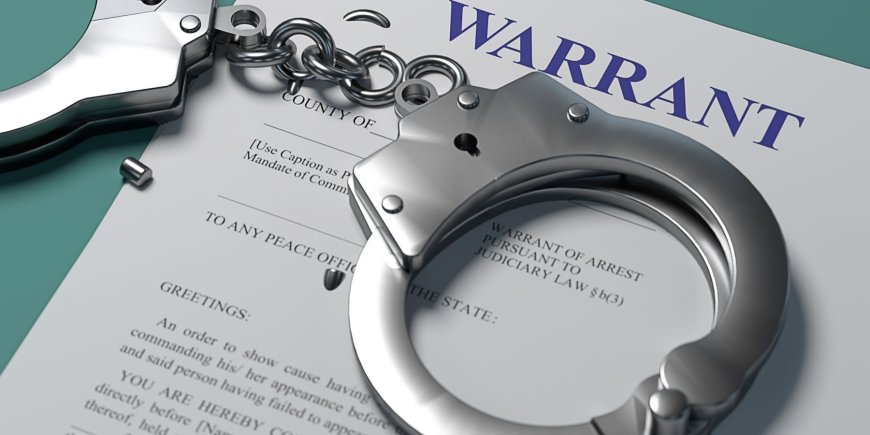What to Do If You Have an Arrest Warrant and Understanding Your Rights
Encountering an arrest warrant can be a daunting and overwhelming experience, often filled with anxiety and uncertainty. Whether you’re aware of the warrant or it comes as a surprise, understanding your rights and the subsequent steps you should take is crucial. This article aims to clarify what to do if you find yourself in this situation, explore whether you will be issued a bond upon arrest, and shed light on how the criminal court system operates.

Encountering an arrest warrant can be a daunting and overwhelming experience, often filled with anxiety and uncertainty. Whether you’re aware of the warrant or it comes as a surprise, understanding your rights and the subsequent steps you should take is crucial. This article aims to clarify what to do if you find yourself in this situation, explore whether you will be issued a bond upon arrest, and shed light on how the criminal court system operates.
An arrest warrant is a legal document issued by a judge or magistrate, authorizing law enforcement to arrest an individual suspected of committing a crime. Warrants are typically based on probable cause, supported by evidence or testimony. They can stem from various offenses, ranging from misdemeanors to felonies.
What do do if you find out you have a warrant out for your arrest.
1.Stay Calm: The first step is to remain composed. Panic can lead to rash decisions that may complicate your situation further.
2. Consult an Attorney: Engaging a legal professional with expertise in criminal law is crucial. They can provide guidance tailored to your specific circumstances and help navigate the legal system effectively.
3. Do Not Resist Arrest: If law enforcement officers arrive to execute the warrant, do not resist arrest. Resisting can lead to additional charges and complications. Instead, comply and cooperate while asserting your right to legal counsel.
4. Gather Information: If you are aware of the warrant, try to gather as much information as possible, including the nature of the charges and the issuing jurisdiction. This information is vital for your attorney.
5. Consider Surrendering Voluntarily: In some cases, voluntarily surrendering to authorities can demonstrate compliance and may favorably influence future legal proceedings. However, consult with your attorney before taking this step.
Once arrested, the question of bond often arises. A bond is essentially a financial guarantee that you will appear in court for your scheduled hearings. Here’s how the process generally works:
1.Cash Bond: This requires the full amount of the bail to be paid in cash. If you appear for all your court dates, the cash is returned after your case concludes.
2. Surety Bond: Often obtained through a bail bondsman, this involves paying a percentage (usually around 10-15%) of the total bail amount. The bondsman secures the remaining amount and takes responsibility for your appearance in court.
3. Personal Recognizance: In some cases, especially for non-violent offenses, judges may release you on your own recognizance, meaning you do not pay bail but promise to return for your court dates.
Factors Affecting Bond Decisions
- Nature of the Charges: Serious charges may lead to higher bail amounts or a denial of bail altogether.
- Criminal History: A prior criminal record, especially if it includes failures to appear in court, can influence the judge's decision on bond.
- Flight Risk: If the court believes you may flee, they may deny bail or set a very high amount.
After your arrest, you will likely have a bond hearing. During this hearing, the judge will consider the factors mentioned above, as well as arguments from your attorney regarding why bond should be granted or reduced.
Understanding the criminal court system is essential for anyone facing charges. The process can be intricate, and knowing what to expect can alleviate some of the anxiety associated with legal proceedings.
What are the Key Stages of the Criminal Process
1. Arrest: The process begins with an arrest based on a warrant or a police officer's probable cause.
2. Initial Appearance: Following the arrest, you will have an initial appearance before a judge, who will inform you of the charges and your rights. This is typically where the issue of bail is addressed.
3. Preliminary Hearing/Grand Jury: In serious cases, a preliminary hearing is conducted to determine if there is enough evidence to proceed to trial. In some jurisdictions, a grand jury may decide whether to issue an indictment.
4. Arraignment: This is where you formally enter a plea (guilty, not guilty, or no contest) to the charges.
5. Pretrial Motions: Both the defense and prosecution may file motions to suppress evidence, dismiss charges, or other legal requests.
6. Trial: If a plea agreement is not reached, the case goes to trial, where both sides present evidence and witnesses. A judge or jury will then render a verdict.
7. Sentencing: If found guilty, a sentencing hearing will determine the consequences, which may include fines, probation, or incarceration.
Having competent legal representation is critical throughout this process. An attorney can advocate on your behalf, negotiate plea deals, and work to minimize potential penalties. The complexities of the criminal court system, with its rules of evidence and procedural nuances, make it challenging for individuals to navigate without professional assistance.
Facing an arrest warrant is undoubtedly a serious matter that requires careful consideration and action. Understanding your rights and the legal processes involved can make a significant difference in how you navigate this challenging time.
Consulting with an attorney, complying with law enforcement, and being informed about the criminal court system are all essential steps to take. While the experience can be frightening, being proactive and educated about your situation can help mitigate the consequences and pave the way for a more favorable outcome.
In a system that can sometimes feel overwhelming and unjust, knowledge is power. By equipping yourself with information and seeking the right legal support, you can take control of your future and work toward resolving your legal issues effectively.







